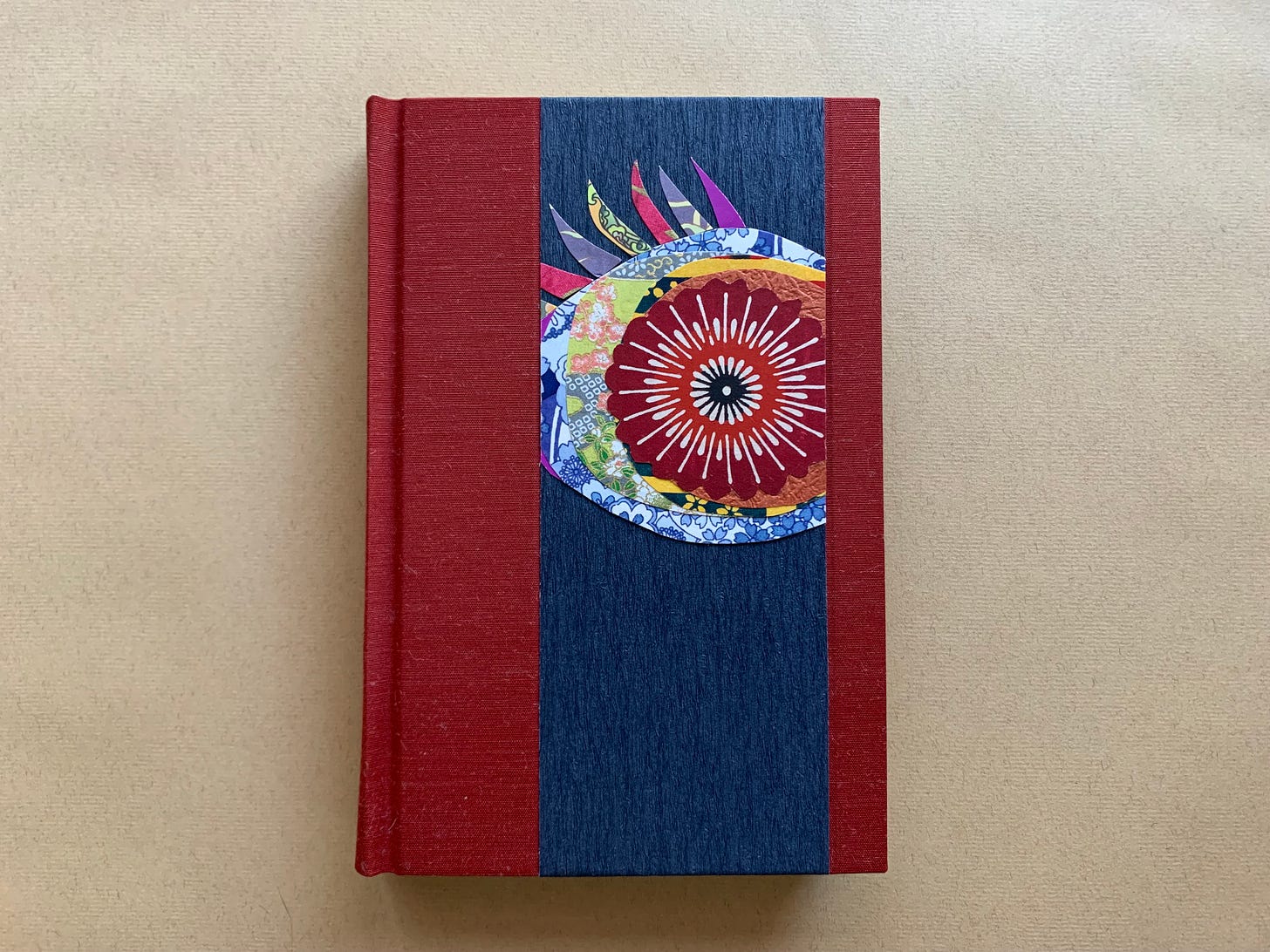No expert
Hi friends,
Some quick business: I’m very excited to share that I rebound a copy of my debut novel Endpapers by hand, and my publisher, Algonquin Books, is giving it away! If you want a chance to win it, enter on Instagram by tomorrow, February 22.
Now, onto what’s been on my mind this week.
Sometimes in writing, as in life, there are lessons we have to keep learning over and over.
About two weeks ago my agent sent me notes on a novel revision. Usually, I dive into editorial feedback hungrily, with an intense curiosity. But when this manuscript arrived in my inbox, I was exhausted — ecstatic yet bone tired from my book launch and all the adjacent writing projects and bookbinding that went along with it. So I filed it away quietly and went about my business.
But we scheduled a meeting to discuss her notes, so when last week snuck up on me, I couldn’t put it off any longer. I sat down during #5amWritersClub with my trusty cup of coffee and dug in. I had already gleaned from her email that there was work to be done, but her marginal comments hit me hard. It was more than I’d expected and more than I believed I’m capable of — another version of the same notes I’ve been getting on this book since the earliest drafts. I’d already given this thing everything I had (hadn’t I?). It was supposed to be practically done.
Fortunately, I’ve been writing long enough to know that this is always my first reaction to feedback: depression and defeat. But it never lasts. After 24 hours of wallowing, my brain goes to work on solutions, inspiring me to rise to the challenge. If it doesn’t, that’s when I take a break from a project or set it aside. But when one is this close to being done (at least done enough to move onto its next stage — in this case, to editors), that’s not an option. I have to find a way to push through.
I’m grateful I married a good listener, because he’s not a writer yet he’s always attentive when I talk his ear off about all things writing. Late last week, he asked how it was going with the novel. When I told him, he responded in his supportive way, “At least now that you’ve been through publishing a book, wouldn’t you say you can apply all the experience you’ve gained to this one?”
I understood what he was getting at and in some ways I’d like to believe it’s true, but the answer is most assuredly no. Another thing I’ve learned from working on four novel drafts over the years is that each project comes with its own unique challenges.
Far from being a deterrent, however, I think it’s the whole reason we persist at this thing. If I kept writing the same story in the same way, I might become really good at it, but I would lose interest. For me, one of the greatest joys in writing comes from the challenge of expressing something I’ve never expressed before, in a way I’ve never done — whether through content or form or voice, or all three.
Not only does each project come with it’s own set of challenges but it also has its own lessons to teach us. And I’ve found there’s usually at least one lesson I need to learn over and over until I get to the finish line. My current novel-in-progress is a literary murder mystery. When I first drafted it, I included the mystery as an interesting way to put my main character on a journey of self-discovery. Because I was more interested in that journey, I downplayed the mystery, solving it by the middle of the book and having her move on to what I thought was the more important part.
The feedback was clear: if I was going to write a mystery, I had to make it satisfying, and in order to do that, I had to lean in.
Clearly the readers (who had many years more experience than I) were wrong. They just didn’t understand what I was trying to do. This wasn’t really about the mystery; it was a LITERARY mystery.
Fast forward through several more drafts. I got the same feedback from agents and editors, and I was starting to feel like that person standing in the middle of a flooding road on the news, yelling, “This isn’t a storm!”
But after a few rounds of this and enough time away from the manuscript, I began to see that I wasn’t just denying the reader a satisfying experience, I was denying my main character a crucial part of her journey — all the tension, fear, and pain that come along with trying to solve how she’s lost a person she loves, and that could allow her to grow and learn more deeply as a person. Which the story demands.
So it seems I’m still learning this lesson: I have to lean even harder into the mystery, into the suspicions and tension and scary things that might be hiding around corners. And as I go, I’m reminding myself that my goal was never to be an expert at writing but, like my main character, to give myself over to the not knowing, to let it guide me and my characters toward new questions and new answers, to learn to see something old in a new way — and invite my readers to do the same.
What are the lessons you’re learning again and again? And what are you leaning into this week? Whatever it is, I wish you growth and success.
Yours,
Jen





